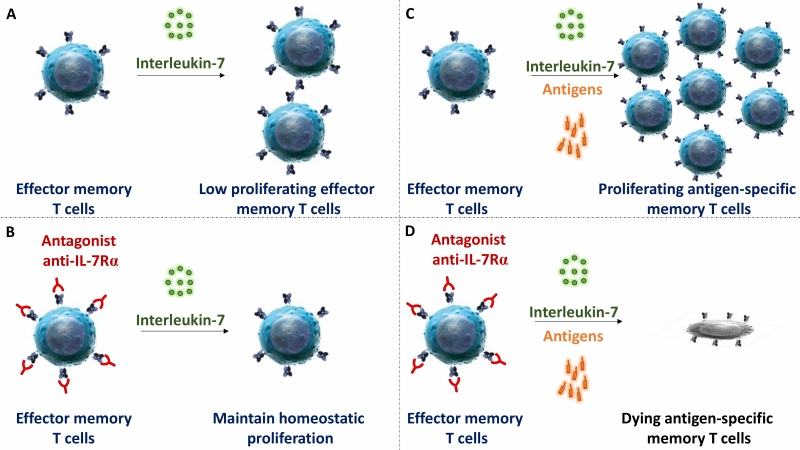Back to article: Full antagonist of the IL-7 receptor suppresses chronic inflammation in non-human primate models by controlling antigen-specific memory T cells
FIGURE 2: Blockade of IL-7R selectively controls survival and expansion of stimulated antigen-specific memory T cells. No antigenic stimulation: Interleukin-7 was described to control some degree of lymphocyte homeostasis (A); however blockade of IL7R in human and non-human primates does not modify the peripheral pool of T cells (B). Antigen restimulation: IL-7 is crucial to prevent apoptosis and sustain memory T cells proliferation after antigen restimulation (C). Full antagonistic anti-IL7R mAb blunts selectively antigen-specific memory T cells responses (D).

